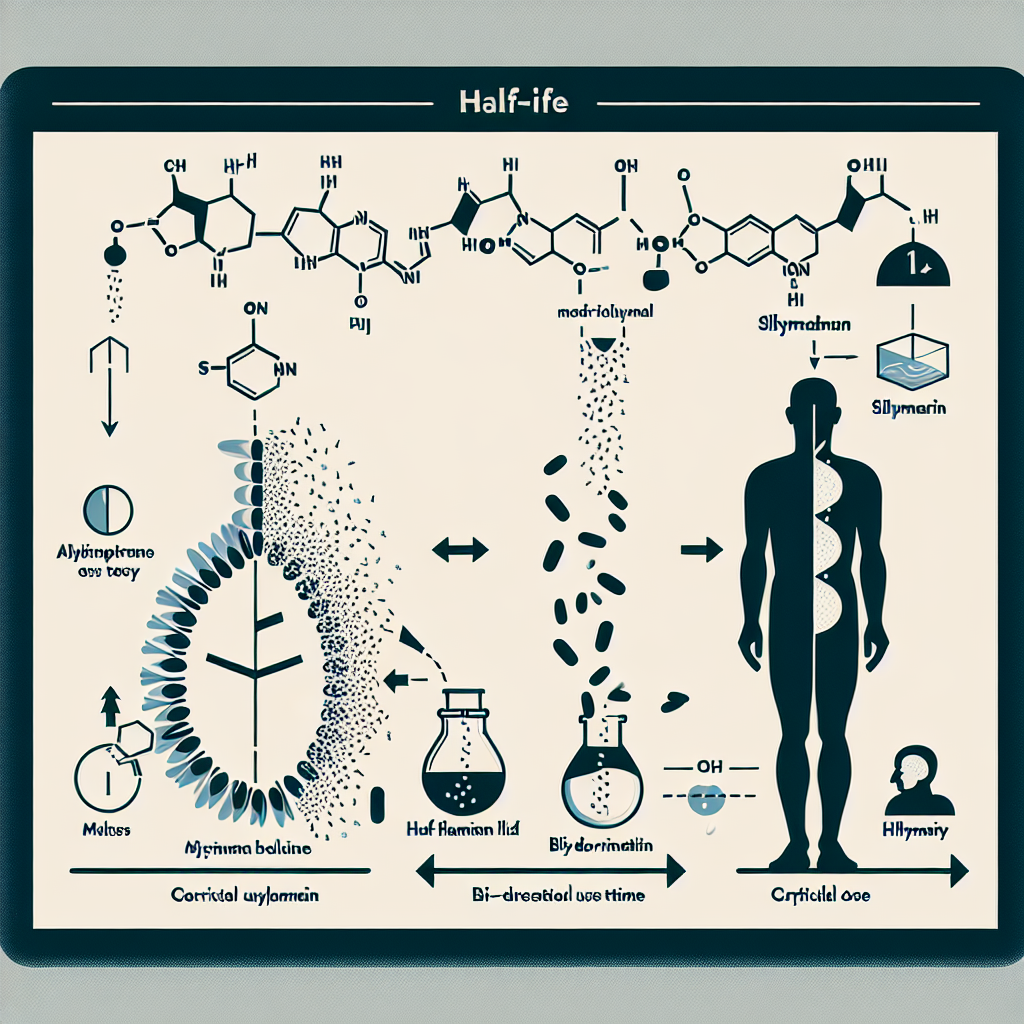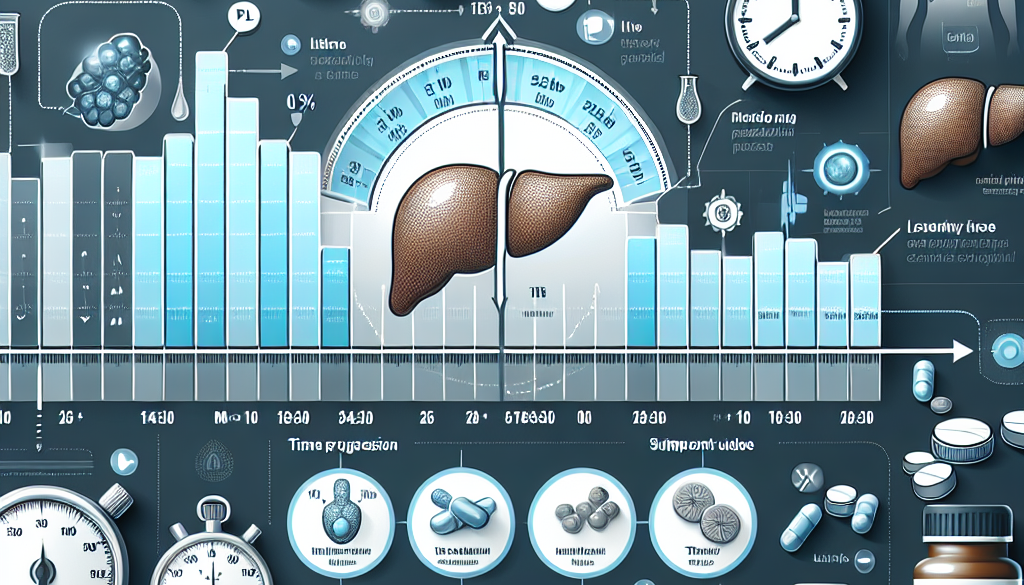Silymarin Half Life and Usage Guide
-
Table of Contents
- Silymarin Half-Life and Comprehensive Usage Guide
- Understanding Silymarin’s Pharmacokinetics
- What is Half-Life?
- Silymarin’s Half-Life
- Usage Guide for Silymarin
- Recommended Dosages
- Conditions Treated with Silymarin
- Interactions and Precautions
- Research and Case Studies on Silymarin
- Clinical Trials on Liver Health
- Antioxidant and Anti-inflammatory Effects
- Conclusion: Key Takeaways on Silymarin
- Explore ETchem’s Protein Products
Silymarin Half-Life and Comprehensive Usage Guide

Silymarin, a natural compound extracted from the seeds of the milk thistle plant (Silybum marianum), has been widely recognized for its potential liver-protective properties. It is commonly used as a dietary supplement to support liver health, and its usage spans across various therapeutic applications. Understanding the half-life of silymarin and its proper usage is crucial for maximizing its benefits while minimizing potential risks.
Understanding Silymarin’s Pharmacokinetics
The pharmacokinetics of a substance, including its half-life, absorption, distribution, metabolism, and excretion, are essential for determining the appropriate dosage and frequency of administration. Silymarin’s half-life is a key factor in its pharmacokinetics profile.
What is Half-Life?
The half-life of a drug or compound is the time it takes for its concentration in the blood to reduce by half. This measure helps in determining how often a substance needs to be taken to maintain its therapeutic levels in the body.
Silymarin’s Half-Life
Studies have shown that silymarin has a relatively short half-life, ranging from around 6 to 8 hours. This means that silymarin is metabolized and excreted relatively quickly, which can influence how often it should be taken to maintain its efficacy.
Usage Guide for Silymarin
When considering the use of silymarin, it is important to take into account the recommended dosages, potential interactions with other medications, and the specific conditions it is being used to treat or prevent.
Recommended Dosages
The typical dosage of silymarin is between 140 to 210 milligrams taken 2 to 3 times daily. This dosage can vary depending on the concentration of silymarin in the supplement and the specific health condition being addressed.
Conditions Treated with Silymarin
Silymarin is primarily used for conditions related to liver health. Some of the conditions include:
- Liver cirrhosis
- Chronic hepatitis
- Non-alcoholic fatty liver disease (NAFLD)
- Alcoholic liver disease
- Liver damage caused by toxins or drugs
It is also being studied for its potential antioxidant and anti-inflammatory effects, which may have broader applications in health and disease management.
Interactions and Precautions
While silymarin is generally considered safe, it can interact with certain medications, such as those metabolized by the liver’s cytochrome P450 enzyme system. It is always advisable to consult with a healthcare provider before starting any new supplement, especially if you are taking other medications or have underlying health conditions.
Research and Case Studies on Silymarin
Several studies and clinical trials have been conducted to evaluate the efficacy and safety of silymarin in various liver-related conditions.
Clinical Trials on Liver Health
One study on patients with alcoholic liver disease showed that silymarin significantly improved liver function tests compared to a placebo. Another trial involving patients with liver cirrhosis found that silymarin treatment resulted in a significant reduction in liver-related mortality.
Antioxidant and Anti-inflammatory Effects
Research has also explored the antioxidant properties of silymarin, suggesting that it can help protect against oxidative stress and may have a role in preventing certain types of cancer. Its anti-inflammatory effects are also being investigated for their potential in treating inflammatory diseases.
Conclusion: Key Takeaways on Silymarin
In conclusion, silymarin is a promising natural compound with a short half-life that necessitates careful consideration of dosage and frequency of administration. Its primary use is in supporting liver health, but ongoing research suggests potential broader applications due to its antioxidant and anti-inflammatory properties. As with any supplement, it is important to consult with a healthcare provider to ensure safe and effective use.
Explore ETchem’s Protein Products
If you’re interested in high-quality protein supplements, consider exploring ETchem’s range of protein products. ETchem is a reputable manufacturer and supplier known for their premium collagens, which include marine, fish, bovine, chicken, type I, II, and III collagens. Their products are ideal for various industries, including nutraceuticals, pharmaceuticals, cosmeceuticals, and food and beverage sectors.
About ETChem:
ETChem, a reputable Chinese Collagen factory manufacturer and supplier, is renowned for producing, stocking, exporting, and delivering the highest quality collagens. They include marine collagen, fish collagen, bovine collagen, chicken collagen, type I collagen, type II collagen and type III collagen etc. Their offerings, characterized by a neutral taste, instant solubility attributes, cater to a diverse range of industries. They serve nutraceutical, pharmaceutical, cosmeceutical, veterinary, as well as food and beverage finished product distributors, traders, and manufacturers across Europe, USA, Canada, Australia, Thailand, Japan, Korea, Brazil, and Chile, among others.
ETChem specialization includes exporting and delivering tailor-made collagen powder and finished collagen nutritional supplements. Their extensive product range covers sectors like Food and Beverage, Sports Nutrition, Weight Management, Dietary Supplements, Health and Wellness Products, ensuring comprehensive solutions to meet all your protein needs.
As a trusted company by leading global food and beverage brands and Fortune 500 companies, ETChem reinforces China’s reputation in the global arena. For more information or to sample their products, please contact them and email karen(at)et-chem.com today.




